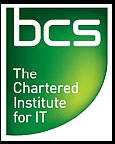Programme
| Sunday 11/9 | Monday 12/9 | Tuesday 13/9 | Wednesday 14/9 | Thursday 15/9 |
|
Trip to
Bletchley park Info for the day |
Industry Day Computer Cooking Competition Doctoral Consortium |
Workshops |
Conference Day 1 Invited speaker Paper sessions Poster sessions |
Conference Day 2 Invited speaker Paper sessions |
| Welcome reception | Gala Dinner |
Instructions for Speakers/Presenters

Speakers:
- You have twenty (20) minutes to
speak and five (5) minutes for questions. The session chair will
ensure that the 25 minutes total time is not exceeded.
- The conference organisers will
provide a PC and computer projector in each session.
- If you wish to use a PowerPoint
presentation, a conference assistant will load it before your
session. Please note that the PCs are NOT fitted with Zip or
Jazz drives.
- The PCs will run Windows XP (or
later) and have Microsoft PowerPoint 2003 (or later) installed.
To avoid compatibility problems, PowerPoint 2003 format (*.ppt)
is recommended over the PowerPoint 2007 format (*.pptx). Please
note that other presentation graphic software packages are NOT
supported.
- If you wish to use your own PC, e.g.
for a software demonstration, please notify the session chair.
- If you are using PowerPoint, remember to check the "Embed True Type" fonts option when you save your presentation. This ensures that any special fonts you have used will display correctly on the conference PCs.
Posters:
At the
conference, poster presenters will be provided with a 1600X1200mm
poster board during the conference. You are free to choose the page
size for your poster but remember that the poster board size is from
floor level so your poster size should ideally start well above
floor level. Generally in the past A2 posters have worked best in
terms of visibility and clarity. Laminated posters are best and
sticky bits that go on the back will be provided.
Accepted Papers for Oral Presentation
- Ashraf Elsayed, Mohd Hanafi Ahmad Hijazi, Frans Coenen, Marta Garcia-Finana, Vanessa Sluming and Yalin Zheng. Time Series Case Based Reasoning for Image Categorisation
- Ralph Bergmann and Yolanda Gil. Retrieval of Semantic Workfows with Knowledge Intensive Similarity Measures
- Jonathan Rubin and Ian Watson. Successful Performance via Decision Generalisation in No Limit Texas Hold'em
- Mirjam Minor and Sebastian Görg. Acquiring Adaptation Cases for Scientific Workflows
- Marc Compta Perpiña and Beatriz López Ibáñez. Integration of sequence learning and CBR for complex equipment failure prediction
- Bernhard Freudenthaler. CBRSHM – A Case-Based Decision Support System for Semi-Automated Assessment of Structures in Terms of Structural Health Monitoring
- Lara Quijano-Sanchez, Juan Recio-Garcia and Belen Diaz-Agudo. User satisfaction in long term group recommendations
- Ricardo Palma, Antonio A. Sanchez-Ruiz, Marco Antonio Gomez-Martin, Pedro Pablo Gomez-Martin and Pedro Antonio González-Calero. Combining Expert Knowledge and Learning from Demonstration in Real-Time Strategy Games
- Sanjeet Hajarnis, Christina Leber, Hua Ai, Mark Riedl and Ashwin Ram. A Case Base Planning approach for Dialogue Generation in Digital Movie Design
- Sergio Manzano, Santiago Ontañón and Enric Plaza. Amalgam-based Reuse for Multiagent Case-based Reasoning
- Zurina Saaya and Barry Smyth. Recommending Case Bases: Applications in Social Web Search
- Antonio A. Sanchez-Ruiz, Santiago Ontañón, Pedro González Calero and Enric Plaza. Measuring Similarity in Description Logics using Refinement Operators
- Kerstin Bach, Klaus-Dieter Althoff, Armin Stahl and Régis Newo. A Case-Based Reasoning Approach for Providing Machine Diagnosis from Service Reports
- Patrice Schlegel and Eyke Huellermeier. Preference-Based CBR: First Steps Toward a Methodological Framework
- Lisa Cummins and Derek Bridge. On Dataset Complexity for Case Base Maintenance
- Edwina Rissland and Xiaoxi Xu. Using Case-Based Tests to Hunt for Gray Cygnets
- David Mcsherry and Christopher Stretch. Learning More from Experience in Case-Based Reasoning
- Anil Patelia, Sutanu Chakraborti and Nirmalie Wiratunga. On the Integration of selective Background Knowledge in TCBR systems
- David Leake and Mark Wilson. How Many Cases Do I Need? Early Assessment and Prediction of Case-Base Coverage
Accepted Papers for Poster Presentation
- Alastair A. Abbott and Ian Watson. Ontology-Aided Product Classification: A Nearest Neighbour Approach
- Atilim Gunes Baydin, Ramon Lopez De Mantaras, Simeon Simoff and Carles Sierra. CBR with Commonsense Reasoning and Structure Mapping: An Application to Mediation
- Valmi Dufour-Lussier, Jean Lieber, Emmanuel Nauer and Yannick Toussaint. Improving case retrieval by enrichment of the domain ontology
- Lara Quijano-Sanchez, Juan Recio-Garcia and Belen Diaz-Agudo. Using personality to create alliances in group recommender systems
- Sergio Manzano, Santiago Ontañón and Enric Plaza. A Case-based Approach to Open-Ended Collective Agreement with Rational Ignorance
- Alexandra Coman and Hector Munoz-Avila. Qualitative vs. Quantitative Plan Diversity in Case-Based Planning
- Raafat Zarka, Amélie Cordier, Elöd Egyed-Zsigmond and Alain Mille. Trace replay with change propagation impact in client/server applications
- Markus Weber, Christoph Langenhan, Thomas Roth-Berghofer, Marcus Liwicki, Andreas Dengel and Frank Petzold. Fast Subgraph Isomorphism Detection for Graph-Based Retrieval
- Bryan Wiltgen, Ashok Goel and Swaroop Vattam. Representation, Indexing, and Retrieval of Biological Cases for Biologically Inspired Design
- Cindy Marling, Matthew Wiley, Tessa Cooper, Razvan Bunescu, Jay Shubrook and Frank Schwartz. The 4 Diabetes Support System: A Case Study in CBR Research and Development
- Isabelle Bichindaritz. Comparison of Reuse Strategies for Case-based Classification in Bioinformatics
- Sadiq Sani, Nirmalie Wiratunga, Stewart Massie and Robert Lothian. Term Similarity and Weighting Framework for Text Classification
- Gilles Richard and Henri Prade. Analogy-making for solving IQ tests: A logical view
![]()



